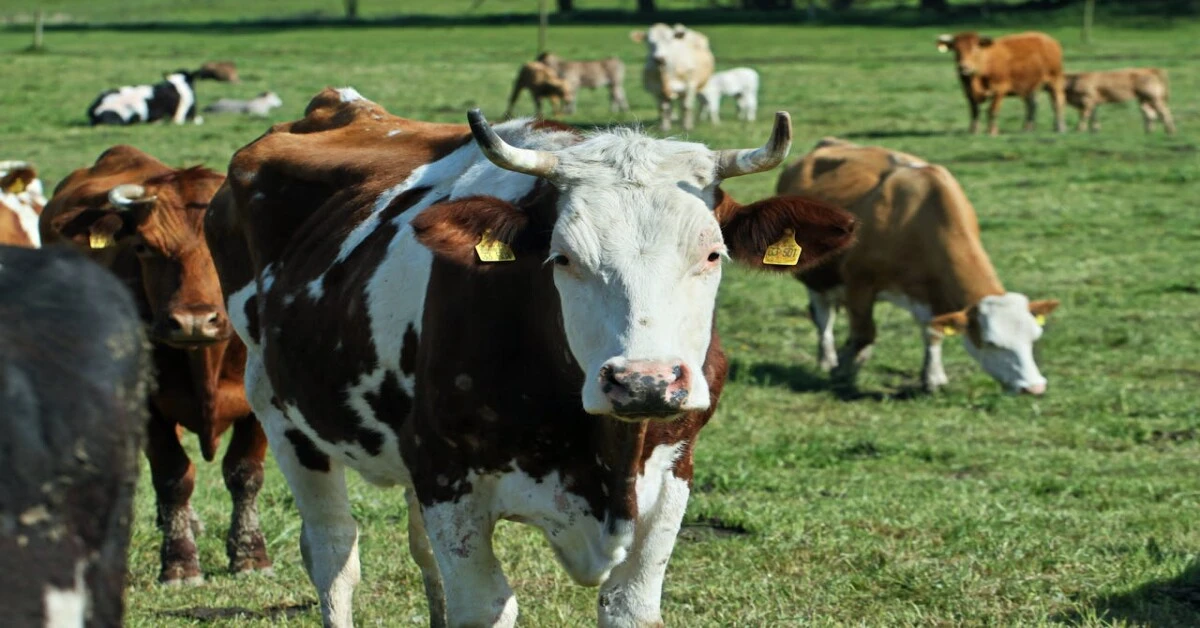Organic farming is gaining popularity as people seek healthier food and a cleaner environment. Unlike conventional farming, it avoids synthetic chemicals and focuses on natural methods to grow crops and raise animals.
The principles of organic farming provide the foundation for sustainable agriculture by promoting soil health, ecological balance, and ethical farming practices. These principles ensure that farming remains productive while protecting nature for future generations.
By using compost, crop rotation, and natural pest control, organic farmers maintain soil fertility and biodiversity. This approach not only improves food quality but also reduces pollution and conserves water. Organic farming principles guide agricultural sustainability by balancing food production with environmental responsibility.
Furthermore, they support humane animal treatment and eliminate harmful chemicals from our food supply. This blog explores the core principles of organic farming and their benefits for both people and the planet.
Organic Farming
Organic farming is a natural method of growing crops and raising animals without synthetic chemicals. It relies on compost, crop rotation, and biological pest control to maintain soil fertility and protect the environment.
Unlike conventional farming, it avoids synthetic pesticides, herbicides, and genetically modified organisms (GMOs).
In today’s world, organic farming is more important than ever. It helps reduce soil degradation, protects water sources, and promotes biodiversity. With rising concerns about food safety and climate change, organic agriculture offer a sustainable way to feed the growing population.
Farmers and consumers alike benefit from healthier food and a cleaner environment. Following organic farming principles ensures long-term agricultural sustainability. These principles support soil health, ecological balance, and ethical farming practices.
By adopting organic methods, we can create a farming system that is both productive and environmentally responsible.

Key Principles of Organic Farming
Organic farming follows a set of principles that ensure sustainable food production while protecting the environment. These principles focus on maintaining soil fertility, ecological balance, ethical animal welfare, and avoiding synthetic inputs.
By following these guidelines, farmers create a system that benefits both nature and people.
Below are the core principles of organic farming and how they contribute to a healthier and more sustainable agricultural system.
Soil Health and Fertility
Healthy soil is the foundation of organic farming. Unlike conventional farming, which relies on chemical fertilizers, organic methods focus on building healthy organic soil through natural processes. Farmers use techniques like crop rotation, composting, and cover cropping to improve soil fertility in organic farming.
Crop rotation prevents nutrient depletion and reduces pests naturally. Composting adds essential nutrients to the soil, boosting microbial activity and plant growth. Cover crops, such as legumes, help increase organic matter and enhance soil structure.
These methods ensure long-term fertility, reduce erosion, and improve water retention. By prioritizing organic soil health, farmers create a thriving ecosystem that supports plant and microbial life without harming the environment.
Ecological Balance
An organic farm functions as a balanced ecosystem. Every organism, from insects to plants, plays a role in maintaining stability. Farmers promote biodiversity in organic farming by growing a variety of crops and encouraging natural predators to control pests.
Instead of using chemical pesticides, they rely on natural pest control in organic farming, such as introducing ladybugs to manage aphids.
Additionally, organic farms avoid monoculture, which depletes soil nutrients and increases vulnerability to pests. Instead, they cultivate diverse plant species that support pollinators and improve soil health.
By working with nature rather than against it, organic farming maintains ecological balance, ensuring a self-sustaining agricultural system.
Ethical Animal Welfare
Animal welfare is a key principle of organic farming. Unlike industrial farms that confine animals in small spaces, organic farmers prioritize humane animal treatment in organic farming. Livestock is given access to open pastures, fresh air, and natural diets, which improves their well-being.
Additionally, organic farms prohibit the routine use of antibiotics and growth hormones. Instead, farmers focus on preventive healthcare, such as a nutritious diet and clean living conditions.
Organic animal welfare ensures that animals live healthier lives while producing high-quality milk, eggs, and meat. This approach not only benefits livestock but also results in healthier food products for consumers.
Avoiding Synthetic Inputs
One of the most defining features of organic farming is its commitment to synthetic-free organic agriculture. Farmers do not use synthetic pesticides, herbicides, or genetically modified organisms (GMOs). Instead, they adopt natural solutions like compost fertilizers, biological pest control, and mechanical weed removal.
The overuse of synthetic chemicals in conventional farming has led to soil degradation, water pollution, and health concerns. In contrast, organic farming without chemicals protects natural resources and supports human health. By eliminating harmful substances, organic farmers ensure cleaner soil, healthier crops, and safer food for consumers.
These key principles form the backbone of organic farming. By prioritizing soil health, biodiversity, ethical animal treatment, and chemical-free agriculture, organic farming creates a sustainable and environmentally friendly food system.
Also Read: Organic Farming: A Historical Perspective
Benefits of Following Organic Farming Principles
Organic farming creates a sustainable food path by promoting environmental, health, and economic benefits. By avoiding synthetic chemicals and harmful practices, organic farms support a greener and healthier future.
Let us explore how these principles contribute to a better world.
Environmental Benefits
One of the biggest benefits of organic farming is its positive impact on nature. It reduces soil degradation, water pollution, and carbon emissions, making the environment cleaner. Without chemical pesticides and fertilizers, the soil stays rich in nutrients and microbial life.
Organic farms also promote biodiversity, providing a habitat for beneficial insects, birds, and other wildlife. By working with nature, organic farming helps maintain healthier ecosystems and ensures long-term sustainability.
Health Benefits
Organic food is not just better for the environment—it’s also healthier for people. Since it is grown without synthetic pesticides and chemicals, it reduces harmful pesticide exposure. Studies show that organic fruits and vegetables often have higher nutrient content, including more vitamins and antioxidants.
Choosing organic means safer, more natural food that supports overall well-being.
Economic Benefits
Although organic farming requires more effort, it can be financially rewarding. With growing consumer demand, organic farmers can earn higher profit margins for their produce. Additionally, organic methods make farms more resilient to climate changes, reducing crop failure risks.
This economic sustainability helps farmers maintain stable incomes while protecting natural resources. The environmental impact of organic farming is positive, making it a wise choice for both nature and businesses.
Challenges and Solutions in Organic Farming
Despite its advantages, farmers face several challenges of organic farming. Managing weeds, controlling pests, and maintaining soil fertility without chemicals requires extra effort. Additionally, the cost of organic certification and gaining access to markets can be difficult for small farmers.
To overcome these obstacles, organic farmers use Integrated Pest Management (IPM), which relies on natural pest control methods. Additionally, farmer cooperatives help small producers share resources and reduce costs.
Governments worldwide are also offering incentives for transitioning to organic farming, making the shift more accessible. These solutions help farmers successfully adopt organic methods while maintaining productivity.
Global Adoption of Organic Farming Principles
Organic farming worldwide is growing as more countries recognize its benefits. However, each country has its own rules for organic certification. For example, the United States, European Union, and India have different standards for organic labelling. These differences affect international trade and pricing.
Many global organizations, such as the International Federation of Organic Agriculture Movements (IFOAM), work to set global organic agriculture standards. These regulations help ensure that organic products meet high-quality and sustainability requirements.
With increasing awareness, more governments are supporting organic farming as a way to fight climate change and promote healthier food systems.
Conservation and Organic Farming
Organic farming plays a vital role in environmental conservation. By avoiding synthetic chemicals, it protects biodiversity and ensures that wildlife can thrive. Additionally, organic practices help with water conservation by reducing chemical runoff into rivers and lakes.
Another major advantage is its ability to fight climate change. Organic farms store more carbon in the soil, helping reduce greenhouse gas emissions. These sustainable agriculture principles also improve soil structure, making it more resilient to floods and droughts.
By adopting organic farming and conservation practices, we can create a healthier planet for future generations.
Conclusion
Organic agriculture is a sustainable way of farming that protects the environment, biodiversity, ecosystems, and human health. It avoids harmful chemicals, improves soil fertility, and promotes natural farming methods.
By following these practices, farmers can produce healthier food while reducing pollution and conserving natural resources.
Embracing organic farming principles ensures long-term benefits for both people and the planet. These principles support ethical animal treatment, maintain ecological balance, and create resilient farming systems. Organic methods also help combat climate change by reducing carbon emissions and preserving soil health.
Everyone can contribute to the growth of organic farming. Supporting local organic markets, growing food without synthetic chemicals and spreading awareness can make a big impact. By making thoughtful choices, we can build a healthier, more sustainable future for the next generation.












